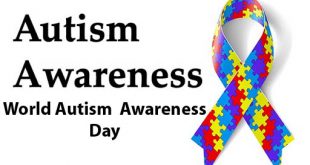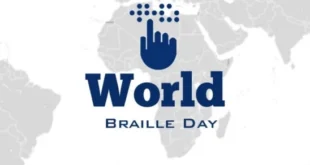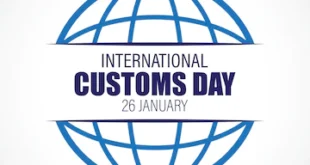
International Day of Zero Tolerance for Female Genital Mutilation 2022 is on Sunday, 6 February 2022. This day is observed on the 6th of February by the UN every year.
International Day of Zero Tolerance for FGM is a milestone in the development of humankind as a just and equal race where no segment is superior to others. More specifically, Zero Tolerance Day for Female Genital Mutilation deals with the issue of Female Genital Mutilation that have been declared illegal by the UN and the global leaders are striving to end this practice as a whole. It is because FGM has many complex and painful physical, sexual, and psychological consequences for the women who go through this process. The UN has set a millennia goal of ending FGM by 2030 with the help of different global organizations like WHO, UNESCO, and OWH.
Theme of International Day of Zero Tolerance for Female Genital Mutilation 2022
“Accelerating Investment to End Female Genital Mutilation.” is the theme of International Day of Zero Tolerance for FGM for the current year 2022.
In some countries, the ratio of female genital mutilation increased during the pandemic COVID-19. The UN proposed this theme for the current year to empower the girls and women about their own lives and health.
What is Female Genital Mutilations
Definition of Female Genital Mutilations (FGM)
World Health Organization (WHO) defines Female Genital Mutilation (FGM) as:
“The partial or total removal of the female external genitalia or another injury to the female genital organs for non-medical reasons”.
A United States-based federal government website managed by the Office on Women’s Health (OWH) in the Office of the Assistant Secretary for Health at the U.S. Department of Health and Human Services defines FGM in the following words:
“Female genital mutilation or cutting (FGM/C) means piercing, cutting, removing, or sewing closed all or part of a girl’s or woman’s external genitals for no medical reason”.
Impacts of FGM on Health
FGM has both short-term and long-term impacts on women’s health. The short-term impacts include severe pain, shock caused by pain and/or excessive bleeding (hemorrhage), difficulty in passing urine and feces because of swelling, edema, and pain, as well as infections. It can also lead to death if the under-operated woman faces hemorrhage or infections, including tetanus and shock. According to survey research held by the World Health Organization (WHO), 46 out of 600 women in the USA reported that their daughters died while going through the FGM process. Long-term consequences include psychological disorders like anxiety, somatization, phobia, and low self-esteem; and physical complications like pain during sexual intercourse, and social disturbances like lack of interest in heterogeneous relationships.
UN Action against this Inhumane Practice
The United Nations Organization (UNO) renounced this practice and the member states agreed to end this practice. FGM eradication fund was allocated using the United Nations International Children’s Emergency Fund (UNICEF). A USD 100,000/year budget was allocated by UNICEF to fight against FGM in 1993. Moreover, the UN announced to spread global awareness against FGM and to observe 6 February as an International Day of Zero Tolerance for Female Genital Mutilation in 2003. In December 2012, the UN General Assembly adopted Resolution S/RES/67/146 that “calls upon Staes, the United Nations System, civil society and all stakeholders to continue to observe 6 February as the International Day of Zero Tolerance for Female Genital Mutilation and to use the day to enhance awareness-raising campaigns and to take concrete actions against female genital mutilations”. The UN has set a millennia goal to curb this practice and global leaders are determined to end FGM by 2030. Apart from that, the UN has added this subject to its mission of spreading education all over the world where students are taught their rights and the unjustifiable painful consequences of FGM via their courses.
Celebrations of International Day of Zero Tolerance for FGM and Public Activities
The UN arranges seminars where speakers talk about the gravity of this issue and the steps the global leadership has taken to address this issue. Seminars are also encouraged in educational institutions like schools, colleges, and universities. Media arranges talk shows where women’s rights activists talk about women’s concerns about FGM and medical scholars talk about the dangers of dealing with unique human organs in such a way.
Speech for International Day of Zero Tolerance for FGM
6th of February reminds us that a major segment of our race has many complex issues that must be addressed to have a better world and Female Genital Mutilation is among those dire issues.
FGM is a millennia-old human practice where millions of women have been being forced to accept the cutting, molding, or disfiguring of their reproductive private parts without any medical compulsion. Few women wish or like to have their organs damaged without their consent rather all are forced either by their men or senior women for certain causes like to stop reproduction. The official website of the Office of Women’s Health (OWH) reveals that more than 513,000 girls and women in the U.S. have experienced or are at risk of FGM/C. Moreover, it also reveals that more than 140 million girls and women alive today have been cut. The official website of the United Nations goes beyond these figures and claims that around 200 million women alive have been gone through the painful process of FGM. 28 million African and Middle Eastern countries have been identified where FGM has the highest rate. These countries include Benin, Burkina Faso, Cameroon, Central African Republic, Chad, Cote d’Ivoire, Djibouti, Egypt, Eritrea, Ethiopia, Gambia, Ghana, Guinea, Guinea-Bissau, Kenya, Liberia, Mali, Mauritania, Niger, Nigeria, Senegal, Sierra Leone, Somalia, Sudan, Togo, Uganda, United Republic of Tanzania and Yemen. Not only are these countries, FGM a known practice in all the parts of the world including India, Europe, Australia, and Russia.
Women are almost half of the population and they have all moral and legal grounds to live their lives as they like.
Feminist movements started in the previous century and women claimed all financial, legal, and social rights equal to men. Men do not face issues like cutting or modification of their reproductive organs under anyone’s pressure, but women do. Zero Tolerance Day for Female Genital Mutilations spreads awareness that we should renounce all such practices which are responsible for women’s subjugation and exploitation.
International Day of Zero Tolerance for FGM reveals the pain this segment of our race when they are treated like this. Women have been facing many troubles due to living in a patriarchal society for centuries and they are fed up now.






